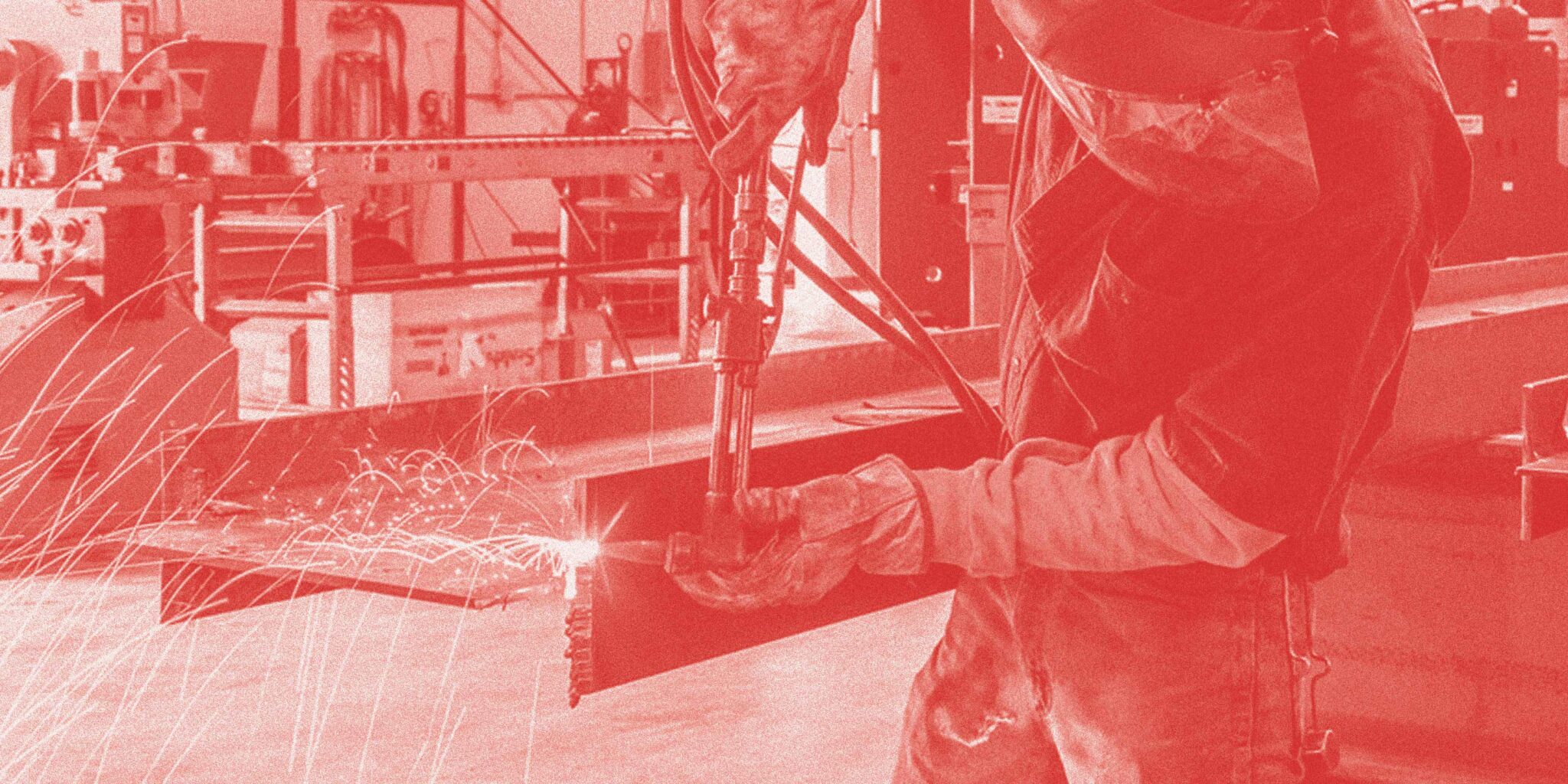Filed under: Anarchist Movement, Interviews, Labor, US

Black Rose Anarchist Federation continues to speak with anarchists involved in the labor movement.
This is the third installment in our Anarchists in the Labor Movement series. Click through the links to read installment #1 with an education worker and #2 with healthcare workers.
In this interview we speak to Daniel Bovard-Katz, a metalworker in a midwestern U.S. state.
As the title suggests, this series engages with anarchists who are active in workplace organizing. Some of those we speak to in this series are building a militant minority within the rank-and-file of their existing union, others are organizing the unorganized through new union campaigns, while others still are finding ways to build the capacity to win shop floor fights in contexts where union support is not available.
In part, our aim with these interviews is simply to shine a light on the presence of anarchist militants in the U.S. labor movement. More substantively, we ask participants to critically reflect on their experiences, including both successes and failures, to draw out generalizable lessons.
Some, but not all of those interviewed in this series are members of Black Rose / Rosa Negra.
Answers have been edited for clarity and length
Daniel Bovard-Katz – Metalworker
BRRN: How would you summarize your politics in one sentence?
Daniel: I believe in radical democracy, meaning all people having equal power to affect society.
BRRN: Can you share some background about the campaign you are working on?
Daniel: I have worked on a lot of campaigns, organizing in my own workplace and supporting others doing so. For my own workplace, I live in the Midwest and work in the metal and machinery industry, broadly defined. We’re not pursuing NLRB1 recognition, so there’s no determined bargaining unit. I started organizing over frustration with working significant unpaid overtime several years ago, but stopped after basically winning on that issue for myself and the one co-worker in a similar role as mine. A friend was hired into the company and recruited someone she worked closely with, which revitalized the effort recently.
BRRN: Are you working with an established union or going independent?
Daniel: We’re part of the Industrial Workers of the World (IWW). I was recruited to the IWW because they seemed to be the only people interested in organizing all workers.
BRRN: How do you see your anarchist politics as relating to organizing for power with coworkers?
Daniel: There is an emphasis on democratic decision making throughout the union, including at the campaign level. Otherwise, politics don’t come up much.
BRRN: Do you ever talk about your anarchist or anti-authoritarian politics with coworkers? Do you talk ‘politics’ (world events, local power structures) with your coworkers at all?
Daniel: Very rarely, and usually pretty surface level. I did have one conversation with a co-worker where we discussed issues at work and how to address them, but afterward he brought up Narendra Modi, who he was a big supporter of, and said that Indian Muslims were all supporters of terrorism. I tried to gently push back on this, talking about how people in the US also have blamed Muslims for terrorist attacks they had nothing to do with, but I don’t think I was very successful. In retrospect, I think that I should have worked harder at this conversation and spent more time finding out why he said that, but I was a little out of my depth.
BRRN: Does your campaign include others who see themselves as ‘political’, but are part of a different political tradition or political organization?
Daniel: I’m not sure. I would guess everyone who has joined the union sees themself as some sort of radical leftist, while some more conservative workers have agreed with the need for change and even collective action, but have not yet been asked about joining a union. We’re in the beginning stages of organizing, so this may be a difficulty later on, but so far has not really been a problem.
BRRN: Does organizing in unions fit into your vision for transforming society or for revolution?
Daniel: Yes, as I said above, I think the core of my belief is democracy, in the sense of people having equal power, and unions are perhaps the only way to meaningfully shift power in the workplace, which is where most of the decisions in society are made. So my process would be something like (1) form unions in all workplaces, (2) build up those unions to the point of actually making decisions about what is produced democratically, (3) cut out the layer of management that no longer does anything, and (4) replace state control of society outside of workplaces with worker control by control of the industrial production that is needed for a complex society.
BRRN: What resources have helped you most as you’ve organized?
Daniel: The IWW Organizer Training program is very good.
BRRN: What advice can you share with anarchists looking to organize a union? What do you wish you had known when you started?
Daniel: You have to build a relationship with people based on caring about them. Talk to your co-workers and learn more about them, even before you start having organizing conversations. Be someone who people like (or at least don’t hate) working with and talking to.
[1] National Labor Relations Board (NLRB) – the agency of the federal government that enforces U.S. labor law and oversees some union elections.





